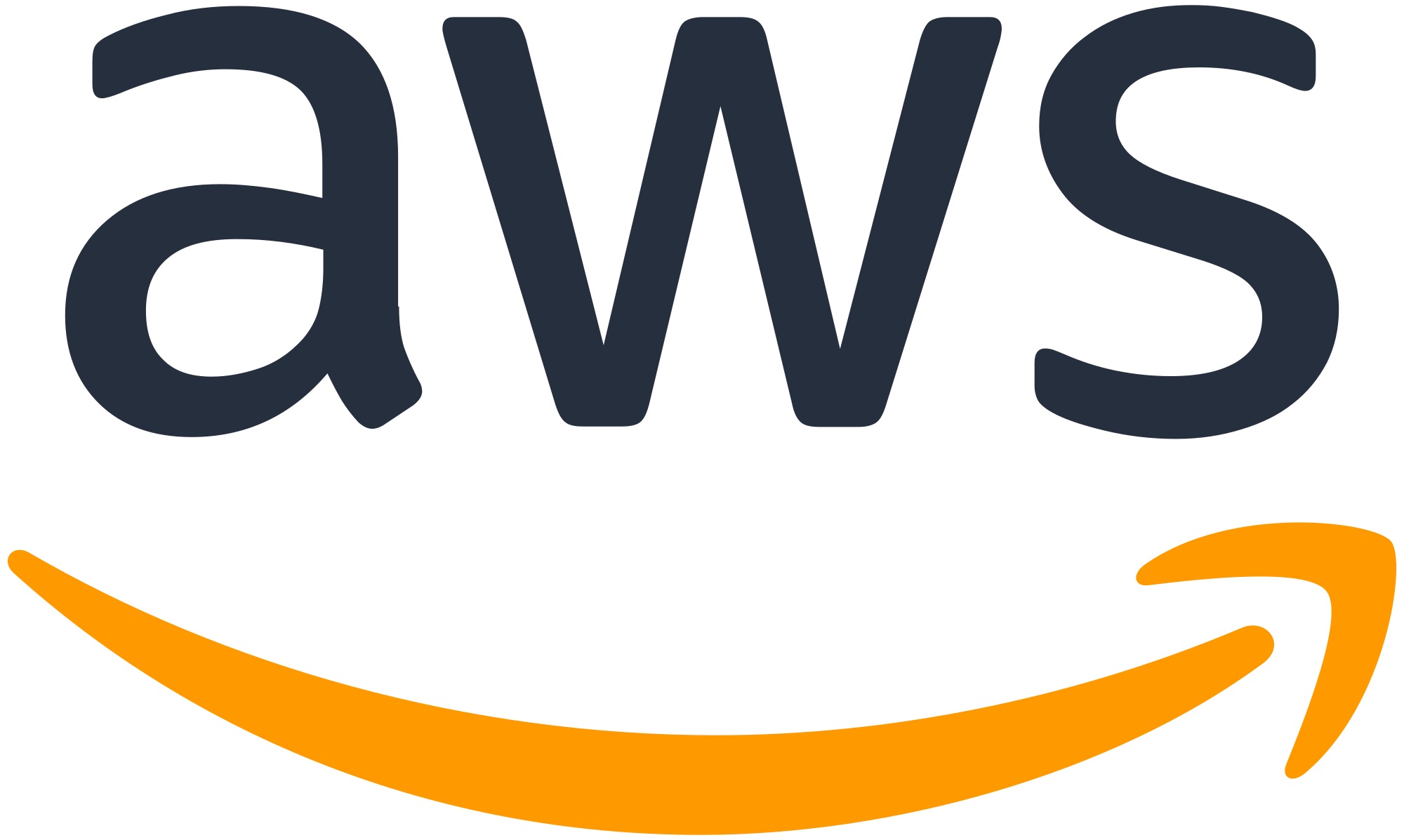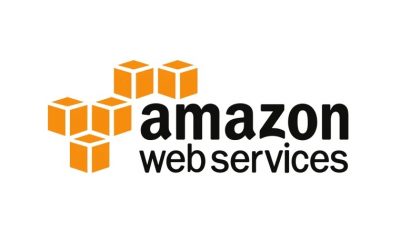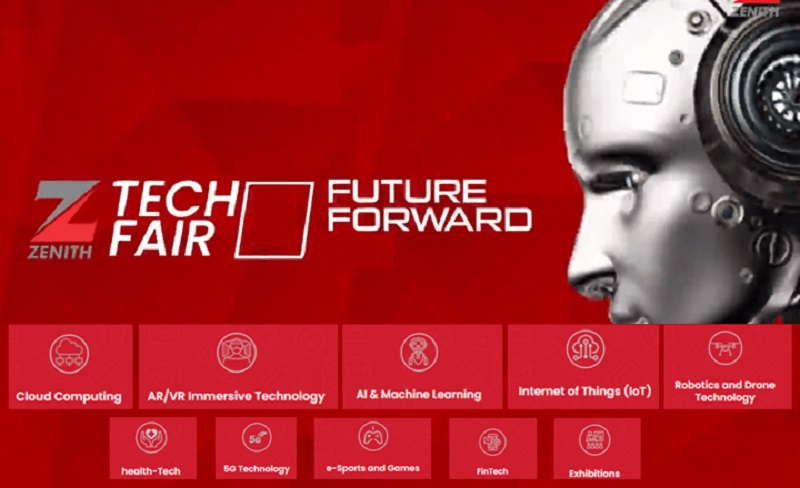Technology
Amazon Web Services to Open Data Centres in South Africa

By Dipo Olowookere
In the first half of 2020, Amazon Web Services will open an infrastructure region in South Africa that will consist of three Availability Zones.
Currently, AWS provides 55 Availability Zones across 19 infrastructure regions worldwide, with another 12 Availability Zones across four AWS Regions in Bahrain, Hong Kong SAR, Sweden, and a second GovCloud Region in the U.S. expected to come online in the coming months. For more information on AWS’s global infrastructure, go to: https://aws.amazon.com/about-aws/global-infrastructure/.
“Having built the original version of Amazon EC2 in our Cape Town development center 14 years ago, and with thousands of African companies using AWS for years, we’ve been able to witness first-hand the technical talent and potential in Africa,” said Andy Jassy, CEO, Amazon Web Services, Inc. “Technology has the opportunity to transform lives and economies across Africa and we’re excited about AWS and the Cloud being a meaningful part of that transformation.”
The new region is the latest in a series of AWS investments in South Africa. In 2004, Amazon opened a development centre in Cape Town that focuses on building pioneering networking technologies, next generation software for customer support, and the technology behind Amazon EC2. AWS has also built a number of local teams including account managers, customer services representatives, partner managers, solutions architects, and more to help customers of all sizes as they move to the cloud.
In 2015, AWS opened an office in Johannesburg, and in 2017 brought the Amazon Global Network to Africa through AWS Direct Connect. In May of 2018, AWS continued its investment in South Africa, launching infrastructure points of presence in Cape Town and Johannesburg, bringing Amazon CloudFront, Amazon Route 53, AWS Shield, and AWS WAF to the continent and adding to the 138 points of presence AWS has around the world.
The addition of the AWS Africa (Cape Town) Region will enable organizations to provide lower latency to end users across Sub-Saharan Africa and will enable more African organizations to leverage advanced technologies such as Artificial Intelligence, Machine Learning, Internet of Things (IoT), mobile services, and more to drive innovation. Local AWS customers will also be able to store their data in South Africa with the assurance that their content will not move without consent, while those looking to comply with the upcoming Protection of Personal Information Act (POPIA) will have access to secure infrastructure that meets the most rigorous international compliance standards.
African organizations already moving to AWS
Organizations across the African continent have been increasingly moving their applications to AWS. Enterprises such as Absa, Investec, MedScheme, MiX Telematics, Old Mutual, Pick n Pay, Standard Bank, Travelstart, and many more are using AWS to drive cost savings, accelerate innovation, and speed up time-to-market. African startups choosing AWS as the foundation for their businesses include Aerobotics, Apex Innovation, Asoriba, BusinessOptics, ColonyHQ, Custos Media, DPO PayGate, EMS Invirotel, Entersekt, graylink, HealthQ, JourneyApps, JUMO, Luno, Mukuru, NicheStreem, Parcelninja, Simfy Africa, Zanibal, Zapper, and Zoona. The African Public Sector, including researchers, museums, and health sciences organizations, are also choosing AWS. For example, The National Museums of Kenya (NMK), is using AWS to digitize their most precious and valuable artifacts, which make up one of the largest collections of archaeology and paleontology in the world.
Absa, one of the largest and most innovative banks in Africa, welcomes the news of an AWS Region. “AWS has been Absa’s primary cloud provider for the past three years. The reduction in latencies that will accompany their expansion to South Africa will further enable us to scale our cloud consumption,” said Andy Baker, CIO at Absa. “We no longer deploy bespoke hardware, SAN storage, or high-cost proprietary database solutions. Instead, our new tech stack utilizes low cost, fully automated, logically partitioned, open source software, with real-time security and application monitoring. AWS’s track record of delivering enterprise ready and South African regulator-approved services to Absa has given us confidence to deploy services aimed at further reducing our operational costs and improving our cyber risk profile.”
Another well-known South African enterprise using AWS for their mission critical workloads is MiX Telematics, a global provider of fleet management, driver safety, and vehicle tracking services and solutions. “We started working with AWS in 2015 and decided to go ‘all-in,’ including migrating our full fleet and mobile asset management stack to AWS and shutting down our on-premises data centres over a period of 18 months,” said Catherine Lewis, Executive VP (Technology) at MiX Telematics. “Through moving to AWS, we have been able to speed up innovation and increase system reliability, while reducing the time to get new ideas into production from months to minutes. While we already use AWS globally in Ireland, Australia, and the U.S., an AWS infrastructure region in Africa will accelerate our innovation even further, improve our service, and ultimately reduce the costs of supporting our base of over 700,000 vehicles. We are also in the process of migrating over 7,000 costly Microsoft SQL Server databases to Amazon Aurora and Amazon RDS PostgreSQL, and adopting new technologies, such as AWS’s Artificial Intelligence and Machine Learning services, to help more intelligently manage vehicle efficiency, improve driver safety, and ultimately enable us to drive greater value for our customers.”
Pick n Pay is one of the largest retailers in Africa, with over 80,000 staff across 1,560 stores, and is moving their eCommerce and data analytics systems to AWS. “By moving our eCommerce and mobile customer application to AWS, from our previous managed services model, we estimate we have saved significantly on our total cost of ownership over the past year,” said Chris Shortt, General Manager of Information Services, Pick n Pay. “The relationship, performance, reliability, and cost savings has been positive and has led us to move our SAP Business Warehouse systems to certified AWS X1 instances. Selecting AWS highlights the differentiated, cloud-first thinking they bring to us as opposed to more traditional, and less agile, service providers. The scale, security, speed, and customer focused nature of AWS is something we’ve become accustomed to and look forward to expanding our use of their services as the South African Region becomes a reality.”
In the startup space, Entersekt, an authentication and mobile application security company, is leveraging the scalability of AWS to support world-renowned financial services organizations including Absa, Capitec Bank, Nedbank, Swisscard, and more. The company is using AWS to send fully encrypted data from their banking customer’s on-premises environments to the cloud. This high level of security helps Entersekt’s customers across 45 countries to secure over 150 million transactions per month, drastically reducing online and mobile banking and payment fraud rates. “As a South African headquartered company and long-term customer, we are proud to be among the first to welcome the news of an AWS Region,” said Schalk Nolte, CEO of Entersekt. “Our customers are large financial institutions for whom even minutes of downtime are unacceptable. They experience significant spikes in transaction volumes during the course of a month and AWS provides the elasticity and availability they demand, without having to build, operate, and protect a system of this kind themselves. AWS has ensured extremely high service levels even as transactions continue to double every six months. An AWS infrastructure region in South Africa is great news as it will give us the opportunity to continue this rapid growth and offer South African financial institutes localised data control and protection with increased system performance and reduced latency.”
Another startup using AWS to speed up their work is South African-based Hyrax Biosciences. Originating from the South African National Bioinformatics Institute at the University of the Western Cape, Hyrax Biosciences has developed a technology on AWS called Exatype that rapidly and accurately tests HIV and tuberculosis drug resistance. “When we were developing Exatype, we naturally turned to AWS because it allows us to provide patients with secure, timely, and reliable results. We knew that with the ability to quickly scale up our technology on AWS, our solution had the potential to influence the lives of millions of people,” said Professor Simon Travers, Co-Founder and CEO of Hyrax Biosciences. “Currently 10 percent of patients on HIV antiretroviral treatment do not respond to the drugs provided to them because of drug resistance. The Exatype system solves this problem by showing clinicians which drugs would be most effective for each individual patient in order to increase their response and improve treatment. Traditionally, it can cost as much as $300 to $500 to do a single resistance test. Now, thanks to AWS, Exatype can do this at a fraction of the cost. HIV still affects millions of people, so knowing an AWS Region is coming to South Africa is great news as it will help us to speed up research and take us a step nearer to ensuring all HIV positive people get the standard of care they need.”
AWS also has a vibrant ecosystem in South Africa, including AWS Partner Network (APN) Partners that have built cloud practices and innovative technology solutions on AWS. APN Consulting and Technology Partners in South Africa helping customers to migrate to the cloud include Autumn Leaf, BBD, Dimension Data, EOH, First Distribution, Silicon Overdrive, Servol Software, Symbiotics, Synthesis Software Technologies, and others.
AWS supports South African development
As well as supporting existing customers, AWS is also investing in the future of the South African technology community, taking part in a number of philanthropic and charity activities. Amazon supports organizations such as AfricaTeenGeeks, an NGO that teaches children to code, Code4CT, a charity set up to inspire and empower young girls by equipping them with technical skills, DjangoGirls, which introduces women to coding, and GirlCode, which supports the empowerment of women through technology. Amazon engineers work with these and other charities to provide coaching, mentoring, and AWS credits. Amazon also supports Africa-focused non-profit organization World Reader by donating cloud technology and Kindle devices, filled with e-books, to tackle illiteracy in Sub-Saharan Africa. As a result of the support from Amazon, World Reader has deployed over 27,000 Kindles to 396 schools and 109 libraries across 16 African countries.
In the education space, AWS supports the Explore Data Science Academy to educate students on data analytics skills in order to produce the next generation of data scientists in Africa. AWS is also working with education institutions in South Africa, such as the University of Cape Town and Stellenbosch University, to help train the next generation of cloud professionals through AWS Educate. Another program for higher education institutes is AWS Academy, which provides AWS-authorized courses for students to acquire in-demand cloud computing skills. The program has already attracted the country’s major academic institutions, including the University of Cape Town, University of Johannesburg, and Durban University of Technology.
To help grow the next generation of African businesses, AWS works with the venture capital community as well as accelerators and incubators in South Africa to provide resources to startups through programs such as AWS Activate. In Cape Town, AWS works with organizations such as 4Di Capital, AngelHub Ventures, Crossfin, Knife Capital, LaunchLab, MTN Solution Space, Mzansi Commons, and Silicon Cape as well as co-working hubs, such as Workshop17, to provide coaching and mentorship as well as technical support and resources to help African startups launch their businesses and go global.
Technology
Telecom Operators to Issue 14-Day Notice Before SIM Disconnection

By Adedapo Adesanya
Telecommunications operators in Nigeria will now be required to give subscribers a minimum of 14 days’ notice before deactivating their SIM cards over inactivity or post-paid churn, following a fresh proposal by the Nigerian Communications Commission (NCC).
The proposal is contained in a consultation paper, signed by the Executive Vice Chairman and Chief Executive Officer of the NCC, Mr Aminu Maida, and titled Stakeholders Consultation Process for the Telecoms Identity Risks Management Platform, dated February 26, 2026, and published on the Commission’s website.
Under the proposed amendments to the Quality-of-Service (QoS) Business Rules, the Commission said operators must notify affected subscribers ahead of any planned churn.
“Prior to churning of a post-paid line, the Operator shall send a notification to the affected subscriber through an alternative line or an email on the pending churning of his line,” the document stated.
It added that “this notification shall be sent at least 14 days before the final date for the churn of the number.”
A similar provision was proposed for prepaid subscribers. According to the Commission, operators must equally notify prepaid customers via an alternative line or email at least 14 days before the final churn date.
Currently, under Section 2.3.1 of the QoS Business Rules, a subscriber’s line may be deactivated if it has not been used for six months for a revenue-generating event. If the inactivity persists for another six months, the subscriber risks losing the number entirely, except in cases of proven network-related faults.
The new proposal is part of a broader regulatory review tied to the rollout of the Telecoms Identity Risk Management System (TIRMS), a cross-sector platform designed to curb fraud linked to recycled, swapped and barred mobile numbers.
The NCC explained in the background section of the paper that TIRMS is a secure, regulatory-backed platform that helps prevent fraud stemming from churned, swapped, barred Mobile Station International Subscriber Directory Numbers in Nigeria.
It said this platform will provide a uniform approach for all sectors in relation to the integrity and utilisation of registered MSISDNs on the Nigerian Communications network.
In addition to the 14-day notice requirement, the Commission also proposed that operators must submit details of all churned numbers to TIRMS within seven days of completing the churn process, strengthening oversight and accountability in the system.
The consultation process, which the Commission said is in line with Section 58 of the Nigerian Communications Act 2003, will remain open for 21 days from the date of publication. Stakeholders are expected to submit their comments on or before March 20, 2026.
Technology
Silverbird Honours Interswitch’s Elegbe for Nigeria’s Digital Payments Revolution

By Modupe Gbadeyanka
The founder of Interswitch, Mr Mitchell Elegbe, has been honoured for pioneering Nigeria’s digital payments revolution.
At a ceremony in Lagos on Sunday, March 1, 2026, he was bestowed with the 2025 Silverbird Special Achievement Award for shaping Africa’s financial ecosystem.
The Silverbird Special Achievement Award recognises individuals whose innovation, vision, and sustained impact have left an indelible mark on society.
Mr Elegbe described the award as both humbling and symbolic of a broader journey, saying, “This honour represents far more than a personal milestone. It reflects the courage of a team that believed, long before it was fashionable, that Nigeria and Africa could build world-class financial infrastructure.”
“When we started Interswitch, we were driven by a simple but powerful idea that technology could democratise access, unlock opportunity, and enable commerce at scale.
“This recognition by Silverbird strengthens our resolve to continue building systems that empower businesses, support governments, and expand inclusion across the continent,” he said when he received the accolade at the Silverbird Man of the Year Awards ceremony attended by several other dignitaries, whose leadership and contributions continue to shape national development and industry transformation.
In 2002, Mr Elegbe established Interswitch after he was inspired by a bold conviction that technology could fundamentally redefine how value moves within and across economies.
Under his leadership, the company has evolved into one of Africa’s foremost integrated payments and digital commerce companies, powering financial transactions for governments, banks, businesses, and millions of consumers.
Today, much of Nigeria’s electronic payments ecosystem traces its foundational architecture to the systems and rails established under his leadership.
“Mitchell’s journey is inseparable from Nigeria’s digital payments evolution. His foresight and resilience helped establish foundational infrastructure at a time when the ecosystem was still nascent.
“This recognition affirms not only his personal legacy, but the broader impact of Interswitch in enabling commerce and strengthening financial systems across Africa,” the Executive Vice President and Group Marketing and Communications for Interswitch, Ms Cherry Eromosele, commented.
Technology
SERAP Seeks FCCPC Probe into Big Tech’s Impact on Nigeria’s Digital Economy

By Adedapo Adesanya
The Socio-Economic Rights and Accountability Project (SERAP) has called on the Federal Competition and Consumer Protection Commission (FCCPC) to urgently investigate major global technology companies over alleged abuses affecting Nigeria’s digital economy, media freedom, privacy rights and democratic integrity.
In a complaint addressed to the chief executive of FCCPC, Mr Tunji Bello, the group accused Google, Meta (Facebook), Apple, Microsoft (Bing), X, TikTok, Amazon and YouTube of deploying opaque algorithms and leveraging market dominance in ways that allegedly undermine Nigerian media organisations, businesses, and citizens’ rights.
The complaint, signed by SERAP Deputy Director, Mr Kolawole Oluwadare, urged the commission to take measures necessary to urgently prevent further unfair market practices, algorithmic influence, consumer harm and abuses of media freedom, freedom of expression, privacy, and access to information.”
SERAP also asked the FCCPC to convene a public hearing to investigate allegations of algorithmic discrimination, data exploitation, revenue diversion, and anti-competitive conduct involving the tech giants.
According to the organisation, dominant digital platforms now act as private gatekeepers of Nigeria’s information and business ecosystem, wielding enormous influence over public discourse and market competition without sufficient transparency or regulatory oversight.
“Millions of Nigerians rely on these platforms for news, information and business opportunities,” SERAP stated, warning that opaque algorithms and offshore revenue extraction models pose both economic and human rights concerns.
The group argued that the alleged practices threaten media plurality, consumer protection, privacy rights, and the integrity of Nigeria’s forthcoming elections.
SERAP pointed to actions taken by the South African Competition Commission, which investigated Google over alleged bias against local media content, adding that the South African probe reportedly resulted in measures including algorithmic transparency requirements, compliance monitoring and financial remedies.
SERAP urged the FCCPC to take similar steps to safeguard Nigerian media and businesses.
The organisation maintained that if established, the allegations could amount to violations of Sections 17 and 18 of the Federal Competition and Consumer Protection Act (FCCPA), which prohibit abuse of market dominance and anti-competitive conduct.
SERAP stressed that the FCCPC has statutory authority to investigate and sanction conduct that substantially prevents, restricts or distorts competition in Nigeria.
It also warned that failure by the Commission to act promptly could prompt the organisation to pursue legal action to compel regulatory intervention.
Citing concerns reportedly raised by the Nigerian Press Organisation (NPO), SERAP said big tech companies have fundamentally altered Nigeria’s information environment, creating what it described as a structural imbalance of power that threatens the sustainability of professional journalism.
Among the allegations listed are: Algorithms controlled outside Nigeria determining content visibility, monetisation of Nigerian news content without proportionate reinvestment, offshore extraction of advertising revenues, limited discoverability of Nigerian websites and platforms, and lack of transparency in ranking and recommendation systems.
SERAP argued that declining revenues in the Nigerian media industry have led to shrinking newsrooms, closure of bureaus, and the emergence of news deserts, weakening journalism’s constitutional role in democratic accountability.
The organisation further warned that algorithmic opacity and data-driven micro-targeting could influence voter exposure to information ahead of Nigeria’s forthcoming elections, raising concerns about electoral fairness and transparency.
-

 Feature/OPED6 years ago
Feature/OPED6 years agoDavos was Different this year
-
Travel/Tourism10 years ago
Lagos Seals Western Lodge Hotel In Ikorodu
-

 Showbiz3 years ago
Showbiz3 years agoEstranged Lover Releases Videos of Empress Njamah Bathing
-

 Banking8 years ago
Banking8 years agoSort Codes of GTBank Branches in Nigeria
-

 Economy3 years ago
Economy3 years agoSubsidy Removal: CNG at N130 Per Litre Cheaper Than Petrol—IPMAN
-

 Banking3 years ago
Banking3 years agoSort Codes of UBA Branches in Nigeria
-

 Banking3 years ago
Banking3 years agoFirst Bank Announces Planned Downtime
-

 Sports3 years ago
Sports3 years agoHighest Paid Nigerian Footballer – How Much Do Nigerian Footballers Earn


















